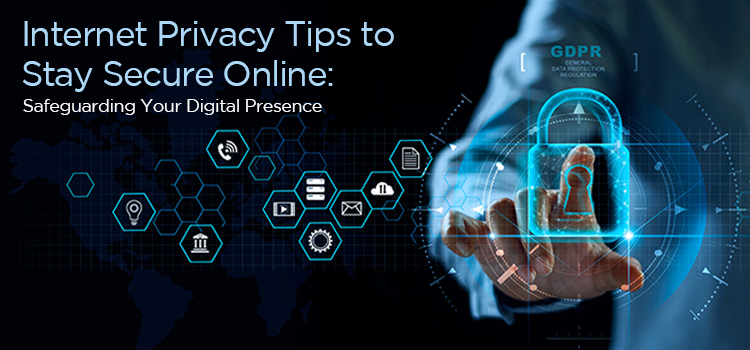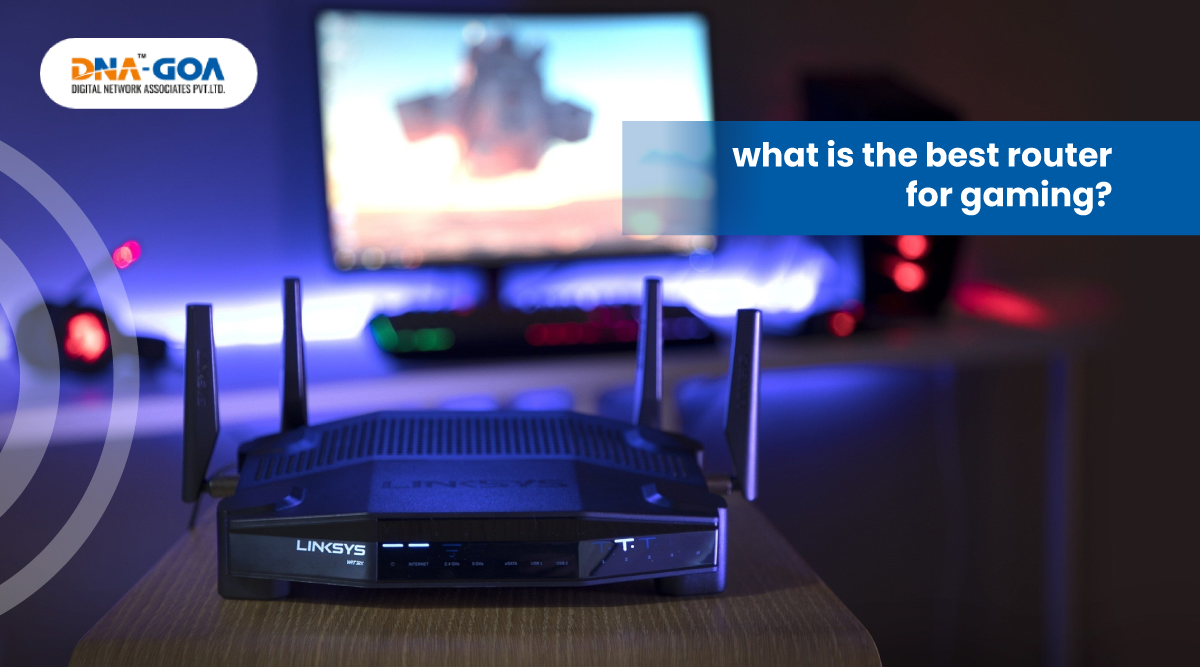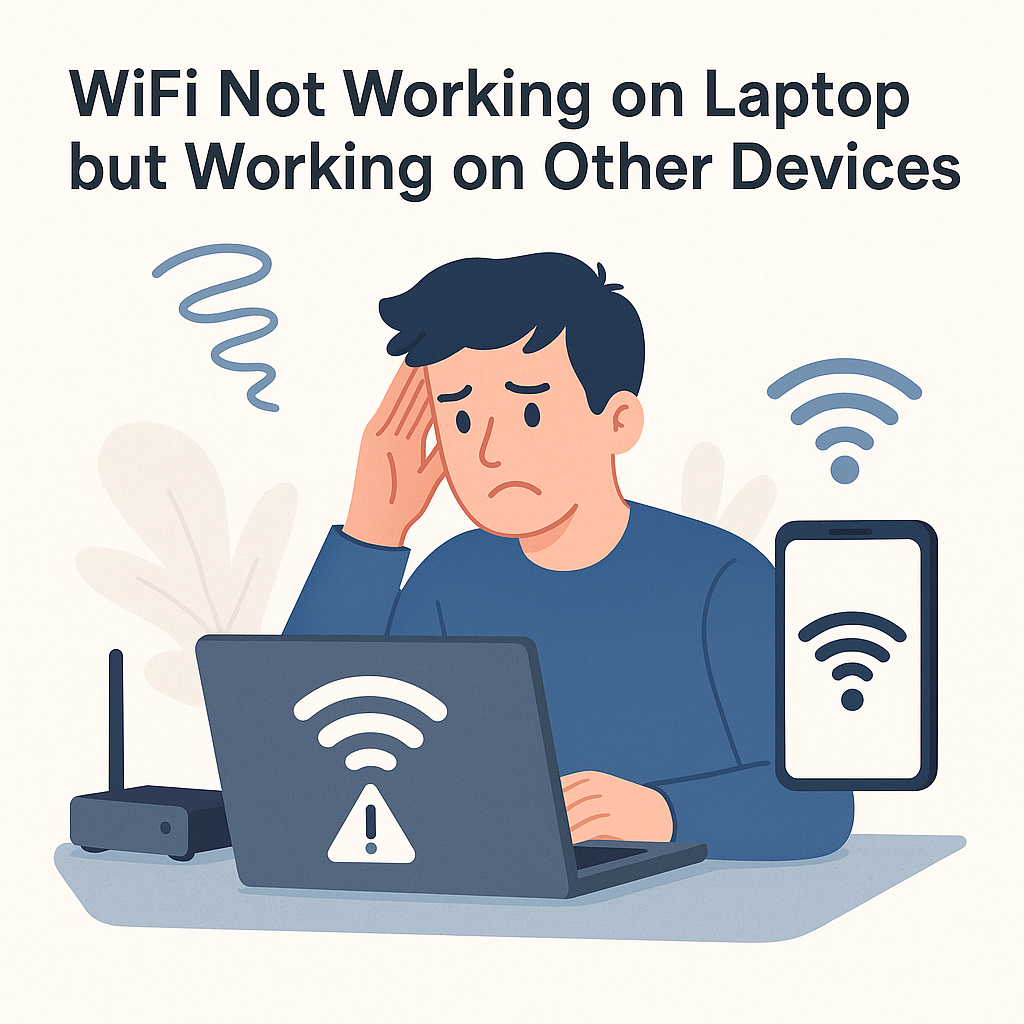Internet Privacy Tips to Stay Secure Online: Safeguarding Your Digital Presence

In today’s digital age, where our lives are increasingly intertwined with the online world, ensuring internet privacy has become more crucial than ever. With the rapid expansion of broadband internet services in Mapusa and the growing concern over online data breaches, it’s essential to adopt effective strategies to protect your personal information.
This article aims to provide you with valuable insights on internet privacy, what is internet privacy, home internet provider in Goa, and the best internet service providers in India.
What is internet privacy?
Internet privacy refers to the right and ability of individuals to control their personal information and activities when using the internet, ensuring that their data remains secure and confidential.
Understand the Importance of Internet Privacy
Internet privacy is of paramount importance in the modern digital age. It refers to the ability of individuals to control the collection, storage, and use of their personal information while using the internet. Understanding the significance of internet privacy is crucial for several reasons:
- Personal Security: Protecting one’s personal information online is vital for safeguarding personal security. Online platforms and services can collect vast amounts of data, including sensitive details such as names, addresses, financial information, and browsing history. If this data falls into the wrong hands, it can be exploited for identity theft, fraud, or other malicious activities. Internet privacy helps individuals maintain control over their personal information and minimizes the risk of such security breaches.
- Data Protection: Internet privacy is closely linked to data protection. Many companies and organizations collect user data to improve their products, personalize advertising, or sell it to third parties. Privacy regulations, such as the European Union’s General Data Protection Regulation (GDPR), emphasize the importance of informed consent and give individuals more control over their data. Protecting internet privacy ensures that individuals have a say in how their personal information is collected, stored, and used.
- Freedom of Expression: Preserving internet privacy is crucial for upholding freedom of expression. Online anonymity allows individuals to express their opinions, share sensitive information, and engage in open discussions without fear of persecution or reprisal. Without privacy protections, people may self-censor their thoughts and ideas, leading to a chilling effect on free speech.
- Personal Autonomy: Internet privacy is essential for maintaining personal autonomy and control over one’s digital life. It ensures that individuals can make informed choices about the information they share, the platforms they use, and the extent of their online presence. Privacy empowers individuals to manage their online identities and protect their reputations, preventing unwanted profiling or discrimination based on personal data.
- Trust and Confidence: Maintaining internet privacy is crucial for building trust between individuals, businesses, and online platforms. When users have confidence that their personal information is protected, they are more likely to engage in online activities, share information, and transact securely. Conversely, privacy breaches erode trust and can lead to a loss of confidence in online services.
- Democracy and Human Rights: Internet privacy is closely tied to democracy and the protection of fundamental human rights. Privacy enables individuals to access information, engage in political discourse, and exercise their rights to assemble and associate freely online. Without privacy, there is a risk of surveillance, censorship, and government control over personal expression and activism.
By advocating for robust privacy protections and adopting responsible online practices, individuals can contribute to a safer and more secure digital environment.
The Best Tips to Stay Secure Online
Educate Yourself on What Internet Privacy Entails:
To protect your online privacy effectively, it’s crucial to understand what internet privacy means. Internet privacy refers to an individual’s right to determine the extent to which their personal information is collected, stored, and shared by online entities. It includes protecting sensitive data, such as financial information, login credentials, and personal identifiers like Social Security numbers or Aadhaar cards.
Use Strong and Unique Passwords:
One of the simplest yet most effective internet privacy tips is to use strong and unique passwords for each of your online accounts. Avoid using common phrases, birthdates, or easily guessable combinations. Instead, create complex passwords with a combination of uppercase and lowercase letters, numbers, and special characters. Additionally, consider using a reliable password manager to securely store and manage your passwords.
Enable Two-Factor Authentication (2FA):
To add an extra layer of security, enable two-factor authentication (2FA) whenever possible. 2FA requires users to provide an additional verification method, such as a fingerprint scan or a unique code sent to their mobile device, along with their password. This ensures that even if your password is compromised, unauthorized access to your accounts is still highly unlikely.
Be Cautious with Personal Information Sharing:
Think twice before sharing personal information online, especially on social media platforms or unfamiliar websites. Be mindful of the data you disclose, as it can be used for targeted advertising, phishing attempts, or identity theft. Limit the amount of personal information you provide and only share it with trusted entities that have a legitimate need for it.
Regularly Update Privacy Settings:
Most online platforms and services offer privacy settings that allow you to control the visibility of your information. Take the time to review and adjust these settings to ensure you’re comfortable with the level of privacy they provide. Regularly check for updates to privacy policies and adjust your settings accordingly to align with your preferences.
Utilize Virtual Private Networks (VPNs):
A Virtual Private Network (VPN) is a valuable tool that encrypts your internet connection and routes it through a secure server, protecting your data from potential eavesdropping and unauthorized access. When using public Wi-Fi networks or accessing the internet from unfamiliar locations, employing a VPN can significantly enhance your online privacy and security.
Choose a Reliable Broadband Internet Service in Mapusa
To ensure a secure online experience, it is essential to choose a reputable broadband internet service provider in Mapusa with basic wifi plans. Look for providers that prioritize internet privacy and implement robust security measures. Conduct thorough research to identify providers known for their reliable services, strong encryption protocols, and transparent privacy policies.
 0832-6747575
0832-6747575









